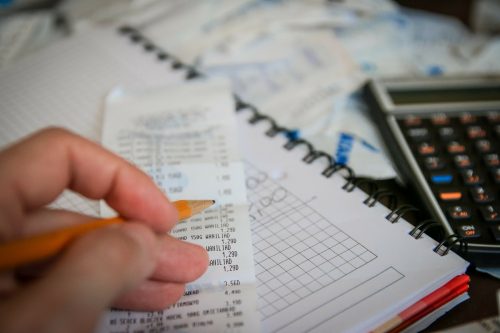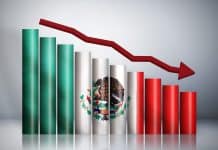Advertisements
Preparers, or survivors who stockpile supplies for a coming apocalypse, have long been derided as fringe denizens but are quickly becoming mainstream. Amid concerns of COVID-19 and the economic uncertainty, consumers are stocking up on food, water, toilet paper and hand sanitizer. But how much effort is being made in parallel to put finances in order?
Most Americans are living one crisis away from economic uncertainty And they're not just low-income Americans. More than 70% of Americans live paycheck to paycheck, according to the American Payroll Association, and nearly three in 10 Americans have no emergency savings, according to Bankrate's Financial Security Index.
Advertisements
Advertisements
When you're feeling depressed by illness or paralyzed by the stress of "imminent doom," the last thing you want to do is make sure your basic needs can be met. So what you do now can help ensure your financial security and minimize unnecessary and costly surprises, like late fees, or increased interest rates, or worse, indebtedness.
Here are four steps to prepare your finances like a survival professional.
STEP ONE: CONSOLIDATE YOUR FINANCES
If you can't see your entire financial position in one place, take the time to add your accounts to see where you stand with your savings, spending, debt and investments. See if your bank or credit union offers tools to enable this, or use an app like YNAB (You Need A Budget).
With interest rates coming down, it's worth looking at how you can save some money on interest payments. If you have multiple credit cards, look for deals to consolidate them into a single monthly payment through a debt consolidation loan. And then set up an automatic payment on that loan!
STEP TWO: AUTOMATE YOUR PAYMENTS
See if your bank or credit union offers an automated bill payment service, and sign up. The more bills that have been automatically paid, the less likely it is that you won't pay if you're sick.
STEP THREE: LIGHT UP YOUR PARTNER
As the old saying goes, hope for the best but prepare for the worst. Have the hard talk with your partner or family about your overall financial situation. If you handle finances, it's important to share details of how to access the accounts with your partner.
If you've been a passenger in your own financial life, now is the perfect time to commit. One resource to guide you through the process is Tips for Talking About Your Finances with Your Partner and Preparing for economic uncertainty.
STEP FOUR: ISOLATE YOUR LOVED ONES
Read More: The consequences of the coronavirus on the Italian economy
If you have children, make sure you have life insurance (it may be cheaper than you think).
And if nothing else, now is a good time to define what "emergency" means to you. The general rule of thumb for an emergency fund is to have three to six months of spending in savings, so you can weather short-term storms. If you don't have this, look for expenses that you can cut now and divert to savings.
Preparation is no longer the domain of the inhabitants of the periphery. With school closings, working from home and canceling events, many people will have extra time on their hands. So use that time to prepare your finances to clarify your financial position and plan for the future. If not now, what are you waiting for to prepare for economic uncertainty?




